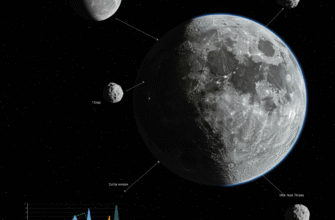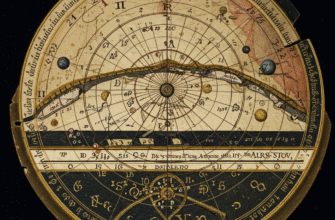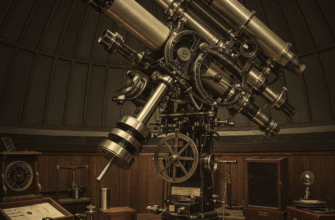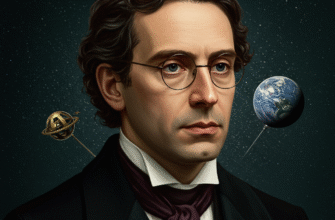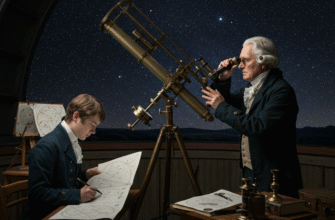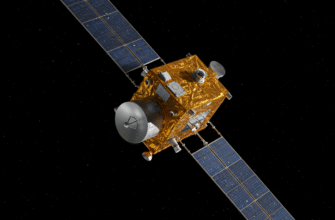Veiled in the velvet cloak of night, the stars whisper tales of antiquity. These silent, twinkling narrators chronicle epics of gods and mortals, and among their most enduring sagas is the celestial feud between Orion, the colossal hunter, and Scorpio, the scorpion that became his doom. Their story isn’t just a relic of myth; it is a nightly spectacle, a cosmic ballet where one constellation rises in pursuit as the other dips below the horizon in an eternal chase.
The Hunter of Legend: Orion’s Grandeur and Flaw
Orion was no ordinary mortal. Often described as a son of Poseidon, the god of the sea, he was a figure of immense stature and unmatched skill in the hunt. Some ancient tales even endowed him with the extraordinary ability to walk upon the waters, a clear mark of his divine parentage. He strode through the wild lands, his aim with the bow unerring, his strength with the club formidable. His loyal hunting dogs, often identified with Canis Major (containing Sirius) and Canis Minor (containing Procyon), were his constant companions, later immortalized as stars themselves. From the shores of Chios, where his pursuit of Merope, daughter of King Oenopion, led to tragedy and blinding, to the island of Crete, where he is said to have hunted alongside the goddess Artemis, Orion’s life was a tapestry of grand adventures. Yet, this exceptional prowess was shadowed by a burgeoning pride, a confidence that frequently tipped over into perilous arrogance.
It was precisely this hubris, this overweening self-assurance, that set the stage for his downfall. In a moment of unguarded boastfulness, Orion declared that he possessed the power and intent to exterminate every animal, every creature, that roamed the Earth. Such a pronouncement, a direct affront to the natural order and the deities who presided over it, resonated through the cosmos, sealing his fate.
The Fateful Sting: Enter Scorpio
The Earth Mother, Gaia, was profoundly disturbed by Orion’s audacious claim. In some versions of the myth, it is not Gaia but a slighted Artemis, the virgin goddess of the hunt, or perhaps Hera, Queen of the Gods, or even Apollo, who reacts to Orion’s boast or to an unwanted advance. Regardless of the instigator, the response was decisive: to safeguard her myriad creatures and to deliver a sharp lesson in humility to the boastful hunter, a monstrous scorpion, Scorpio, was summoned.
This creature was no ordinary beast of the field that Orion was accustomed to dispatching with ease. Scorpio was an agent of divine retribution, emerging from the earth itself, its carapace dark and menacing. Its formidable claws snapped with lethal intent, and its segmented tail arched high, the final segment bearing a stinger filled with a venom of divine potency. Its singular mission was to end the rampage, actual or threatened, of the hunter.
A Hunter Hunted
The confrontation, when it came, was a stark reversal of roles. Orion, the pursuer, found himself the pursued. Despite his legendary strength, his divine heritage, and his experience in tracking and subduing the fiercest of beasts, he was unprepared for this divinely ordained adversary. The scorpion, perhaps shielded by Gaia’s power or simply too alien and implacable for Orion’s known tactics, pressed its attack relentlessly. Details of the battle vary; some accounts describe the scorpion striking Orion on the heel, a point of vulnerability that echoes the fate of Achilles. Other narratives are less specific, stating simply that the scorpion’s venomous sting proved fatal. The great Orion, who had dared to believe no earthly creature could stand against him, succumbed to one of Earth’s more ancient and potent defenders.
Orion’s demise serves as a potent cautionary tale, deeply woven into the fabric of Greek mythology. It underscores the perils of unchecked arrogance, particularly when mortal pride dares to challenge the gods or the fundamental order of the cosmos. Even the mightiest heroes, blessed with extraordinary gifts, were not immune to divine retribution if they overstepped their mortal bounds. These narratives reinforced societal values and a profound respect for the divine powers.
Whispers of Different Origins
While the core narrative of Orion’s death by Scorpio’s sting and their subsequent celestial placement remains largely consistent, the ancient sources provide a fascinating array of variations concerning who precisely dispatched the scorpion and the exact nature of Orion’s transgression. These differing accounts enrich the mythological tapestry, offering complex insights into divine motivations and the multifaceted character of Orion himself.
- Gaia’s Protective Wrath: The most widely recounted version attributes the summoning of Scorpio to Gaia. Incensed by Orion’s destructive vow to wipe out all wild animals, she acted to protect the Earth’s creatures. This version emphasizes themes of ecological balance and due reverence for nature.
- Artemis’s Complex Role: In another prominent set of tales, Artemis, the goddess of the hunt and wilderness, plays a key role, though her motives differ:
- One variant suggests Orion boasted he was a superior hunter to Artemis, a direct challenge to her divine domain.
- Another, darker version posits that Orion attempted to assault Artemis or one of her sacred attendants, such as Opis, prompting the goddess to send Scorpio in defense or retaliation.
- A more tragic and complex narrative involves Apollo, Artemis’s twin brother. Fearing for his sister’s chastity due to her growing fondness for Orion, or perhaps jealous of their bond, Apollo tricked Artemis into shooting Orion. He allegedly dared her to hit a small, distant speck in the sea – which was Orion swimming. In these tellings, Scorpio’s role can be a separate incident leading to his death, or sometimes minimized if Artemis is the direct cause.
- Hera’s Intervention: Some accounts propose that Hera, the often-jealous queen of the gods, dispatched Scorpio. Her motive was supposedly anger towards Eos, the Titan goddess of the dawn, who had taken Orion as a lover. Orion became collateral damage in a divine rivalry.
- Apollo’s Protective or Punitive Act: Beyond the trickery involving Artemis, Apollo is sometimes directly credited with sending Scorpio to protect his sister from Orion’s unwanted advances or simply to punish the hunter’s general arrogance and impiety.
These variations are a testament to the vibrant oral tradition of Greek mythology, where stories evolved and adapted before being recorded by scholars and poets like Aratus, Eratosthenes, and Hyginus, who sought to catalogue these celestial legends.
Etched in the Stars: An Eternal Chase
Following Orion’s death, the gods chose to immortalize both hunter and vanquisher in the night sky. Accounts vary as to who made this decision; often it is Zeus, king of the gods, who, perhaps moved by Orion’s former glory or as a stark reminder of the consequences of hubris, placed him among the stars as the brilliant constellation we know today. In some versions where Artemis grieved for Orion (especially if his death was accidental or a misunderstanding), she herself might have asked for his celestial enshrinement. To honor its role in enacting divine will, or simply to ensure the cosmic balance, Scorpio was also granted a place among the constellations, forming the distinctive shape of Scorpius.
However, their earthly animosity was destined to continue in the heavens. The gods, in their wisdom or perhaps with a sense of dramatic irony, arranged their stellar positions so that they would forever be separated, locked in an eternal chase across the celestial sphere. As the constellation Scorpius, marked by its fiery red heart-star Antares – whose name means “rival of Ares” or “like Mars” due to its reddish hue – ascends in the eastern sky during summer months in the Northern Hemisphere, the constellation Orion is seen to set in the west, as if fleeing its nemesis. Conversely, when Orion, the magnificent winter constellation, dominates the night sky, Scorpius remains hidden beneath the horizon. This perpetual celestial dance is a grand, silent reenactment of their fatal terrestrial encounter, playing out nightly through the changing seasons.
Astronomically, the constellations of Orion and Scorpius are indeed positioned on almost opposite sides of the celestial sphere, approximately 180 degrees apart. This astronomical fact means that when Scorpius is prominent in the summer night sky (for observers in the Northern Hemisphere), Orion is largely invisible, having set or not yet risen. Conversely, Orion is a hallmark of the winter sky, during which time Scorpius is below the horizon. This celestial arrangement beautifully mirrors the mythological narrative of their eternal pursuit.
The constellation Orion is undeniably one of the most recognizable and spectacular stellar formations. It is dominated by two supergiant stars: the reddish Betelgeuse, typically marking one of Orion’s shoulders, and the brilliant blue-white Rigel, denoting one of his feet. Its most famous feature is Orion’s Belt, an asterism formed by the three bright stars Alnitak, Alnilam, and Mintaka, which are easily identifiable. Scorpius, too, is a striking constellation, its curving J-shape vividly evoking the form of a scorpion, with the luminous Antares gleaming at its core, representing the creature’s heart.
Lessons from the Heavens
The enduring myth of Orion and Scorpio transcends mere ancient storytelling; it is imbued with rich symbolism that continues to hold meaning. Orion stands as a powerful archetype of human ambition, extraordinary skill, and physical strength, but simultaneously serves as a warning against the perilous nature of hubris – that excessive pride which so often precedes a downfall. Scorpio, in turn, represents the unexpected and often underestimated forces, sometimes appearing small or insignificant, that can bring about the undoing of even the mightiest. It symbolizes natural justice or divine retribution, a necessary counterforce to unchecked power.
Their never-ending chase across the firmament is a constant, visual reminder of this dramatic narrative. It speaks to the profound cycles of nature – of life and death, of pursuit and evasion, of dominance and submission – and illustrates the delicate, often precarious, balance within the cosmos. For the ancient cultures that first wove these tales, star legends were far more than simple entertainment. They were a means of understanding their world, of imparting critical moral and ethical lessons, and of forging a tangible connection between the human experience and the vast, awe-inspiring universe that surrounded them. The scorpion, a creature often associated with danger, is transformed in this context into an agent of cosmic balance, a vital instrument against arrogance. The great hunter, for all his earthly glory, learns the ultimate lesson in humility, albeit in his stellar afterlife.
So, the next time you find yourself gazing up at the crisp winter sky, marveling at the unparalleled brilliance of Orion and his retinue of stars, take a moment to remember his potent story. And as the warmer nights of summer arrive, watch for the ominous yet graceful curve of Scorpius as it makes its appearance, the celestial creature ensuring that the mighty hunter never forgets his transgression, both forever locked in their dramatic destiny, played out in the silent, star-dusted theater above.

